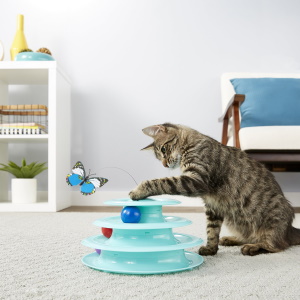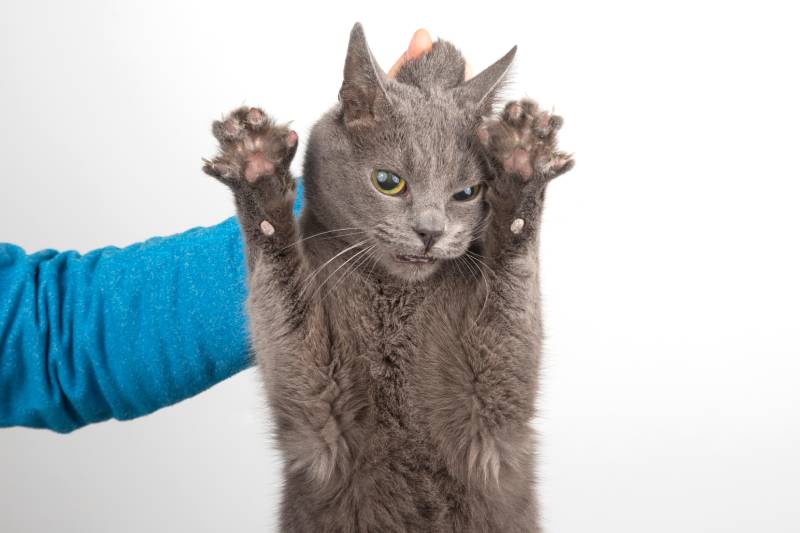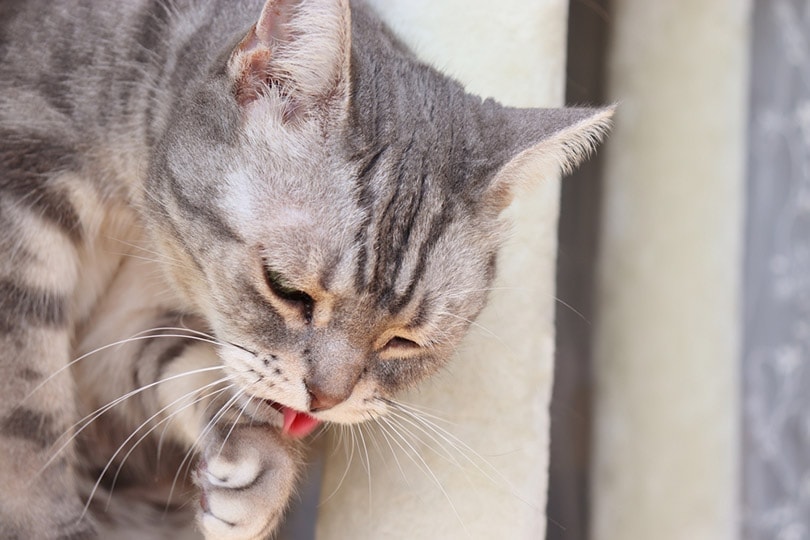7 Scottish Fold Cat Health Problems: Vet-Approved Prevention & Treatment

Updated on

The Scottish fold is a playful and affectionate breed. They are charming and unique in appearance and likened to an owl for their adorable round face, large eyes, and tucked ears. Due to their irresistible cuteness, they are a popular pet choice and are highly sought after.
Unfortunately, their adorable looks can come at a cost. Their tucked ears are due to a dominant gene mutation that affects the cartilage throughout their bodies, and although they are a fairly healthy breed, they do have some hereditary health concerns. If you are thinking of adding one of these cuties to your family, it is important to be familiar with any health problems your furry friend might face.
While it’s always best to talk to your vet, we have compiled a list of possible health concerns to help you stay informed.
The 7 Common Health Issues of Scottish Fold Cats
1. Polycystic Kidney Disease
| Preventable | No |
| Genetically Inherited | Yes |
| Severity | Serious |
| Treatment | Can be managed, not cured |
Scottish Folds are predisposed to Polycystic Kidney Disease, which is a progressive disease that causes cysts to develop in the kidneys and gradually increase in size as the cat gets older, leading to a decline in kidney function and, unfortunately, kidney failure. Cats are usually young when symptoms start to appear.
There is sadly no cure, but this disease can be managed with diet, hydration, and the aid of medications. Symptoms include:
- Dehydration
- Frequent urination and incontinence
- Decreased appetite and weight loss
- Sores in the mouth and bad breath
- Lower back pain
- Edema
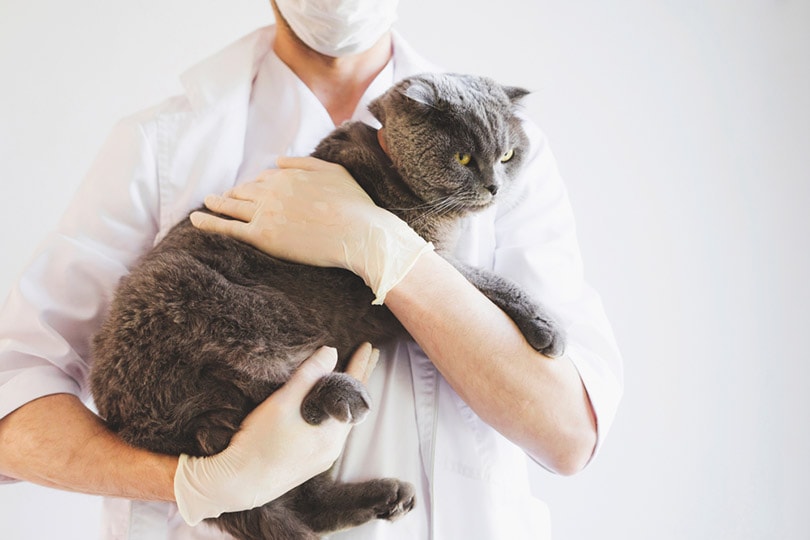
2. Cardiomyopathy
| Preventable | No |
| Genetically Inherited | Yes |
| Severity | Moderate to severe |
| Treatment | Medication |
With a genetic predisposition to Cardiomyopathy, the Sottish Fold is more likely to develop this common form of heart disease than other breeds. Cardiomyopathy causes the heart muscle to become abnormally thickened, making it harder to pump blood through the body. It often occurs in cats aged 5 to 7 years, and the prognosis can vary. Your vet will need to give you a proper diagnosis, but there are several medications that can be used to improve your cat’s quality of life. Symptoms include:
- Loss of appetite
- Weak pulse
- Difficulty breathing
- Lethargy
3. Osteochondrodysplasia
| Preventable | No |
| Genetically Inherited | Yes |
| Severity | Moderate |
| Treatment | Medication |
Osteochondrodysplasia is the genetic deformity that causes the ears of a Scottish Fold to bend forward. It is a disorder of the cartilage and bone that can lead to varying degrees of arthritis and chronic pain. The only way to prevent this condition is by practicing responsible breeding. Many breeders currently only breed folds with non-fold cats to prevent the offspring from having two folded ear genes.
Cats with two (folded) genes are more susceptible to arthritis and other degenerative problems. Symptoms include:
- Swollen wrist and ankle joints
- Lameness
- Stiff tail
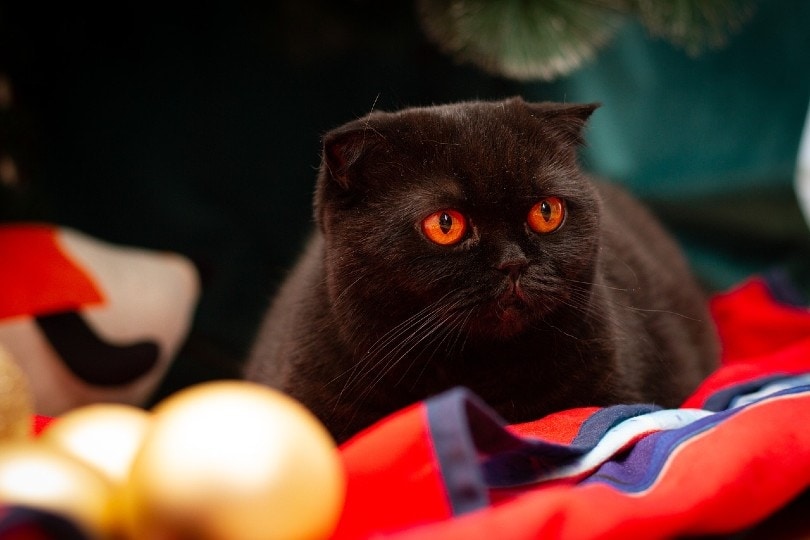
4. Ear Wax Build up
| Preventable | Yes |
| Genetically Inherited | No |
| Severity | Mild |
| Treatment | Cleaning and medication |
Scottish Folds may be prone to ear wax build-up due to their folded ears, and the structure of the ear canal can also make it difficult for material trapped inside to be released. Although ear cleaning is not usually necessary in cats, your Scottish fold will need a cleaning routine to help prevent build-up and ear infections.
Your vet can help you choose a good quality ear-cleaning solution that you squeeze sparingly into your cat’s ear and carefully massage the base for 30 seconds. Use a cotton swab to wipe away any debris and allow your cat to shake its head to help the process along. Make sure your cat is calm, and you may need to swaddle them and have a treat on hand to reward them.
5. Ear Mites
| Preventable | Yes |
| Genetically Inherited | No |
| Severity | Mild to serious |
| Treatment | Cleaning and medication |
Ear mites are a most common issue with cats, and if your Sottish Fold has an ear wax build-up due to their folded ears, then ear mites are a likely concern. They are microscopic and highly contagious, and it may be hard to tell if your cat has them. Mites can become irritating for your kitty, causing them to scratch and create sores that can result in an ear infection.
If an ear infection is left untreated, it can result in deafness or a need for surgery.
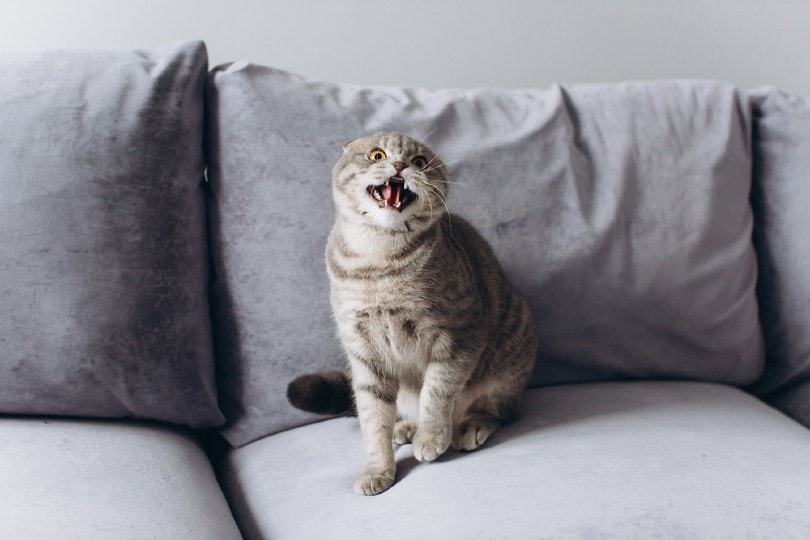
- Related Read: How to Tell if Your Cat Has Ear Mites in 4 Easy Steps!
6. Diabetes Mellitus
| Preventable | Yes |
| Genetically Inherited | No |
| Severity | Moderate |
| Treatment | Insulin therapy, diet |
Diabetes can be a concern for our feline friends too. When cats develop diabetes, their bodies do not produce enough insulin, or they cannot use the insulin that is produced. The Scottish fold can be predisposed to diabetes, and although any cat can potentially develop diabetes, some breeds like the Scottish Fold carry a higher risk. Being aware of early warning signs can help you detect diabetes in your cat and get started on treatment early.
If left untreated, it can sadly become life-threatening to your cat. If you detect symptoms, contact your vet right away. Symptoms include:
- Increased thirst and appetite
- Increase in urination frequency and volume
- Weight Loss
- Lethargy
7. Feline Lower Urinary Tract Diseases
| Preventable | No |
| Genetically Inherited | Yes |
| Severity | Moderate to severe |
| Treatment | Medication, diet, environmental changes |
Feline Lower Urinary Tract Disease or FLUTD is an umbrella term that refers to numerous conditions affecting your cat’s lower urinary tract. It can range in severity, making it hard to diagnose but can be managed with medication, diet, and environmental changes. Conditions that fall under this term include:
- Urinary tract infection: The most common cause in cats and occurs mostly in female cats. They are caused by the colonization of bacteria in the bladder or urethra.
- Bladder stones: Although bladder stones usually occur in cats with UTIs, some can develop because of genetics and diet. Bladder stones pose a risk of bladder obstruction, which can result in death.
- Feline Idiopathic Cystitis: Idiopathic cystitis is an inflammation of the bladder.
- Cancer: Cancer is rare but serious.
The most common symptom of FLUTD is abnormal urination. You may also notice your cat making frequent trips to the litter box, but only producing small drops of urine. In this case, contact your vet immediately as this is a sign of possible obstruction.
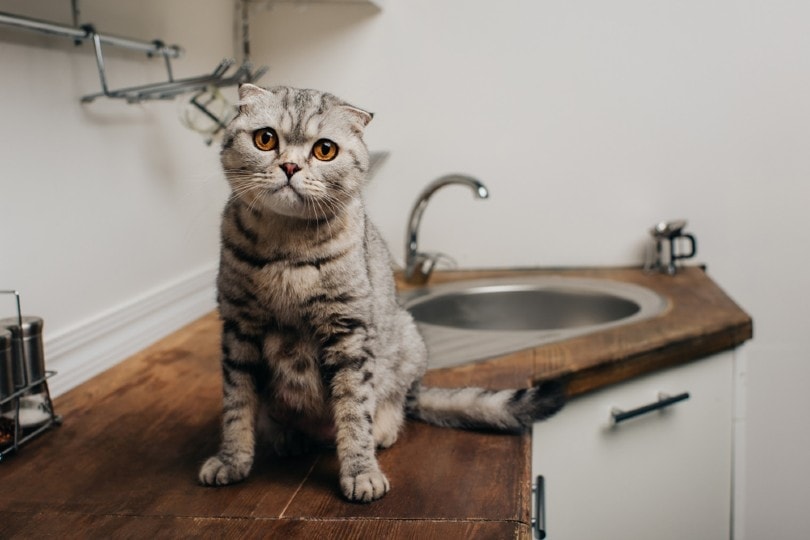
Other Minor Conditions That Can Affect All Cats
- Gum Disease: Gum disease is one of the most common diseases found in cats. Food particles build up on the cat’s gumline and form plaque, which leads to gingivitis. Gingivitis occurs when saliva and minerals combine with plaque build-up to form tartar. Over time the tartar that builds up under the gum separates from the teeth, creating a breeding ground for bacteria to grow. This leads to permanent periodontal disease that is irreversible. Daily brushing with pet-safe toothpaste and professional cleaning can help your cat avoid plaque build-up.
- Allergies: Allergies affect a large number of cats and can have various triggers. An allergy is usually caused by an overreaction of the immune system, which includes fleas, pollen, household allergens, food, and perfume.
- Conjunctivitis: Conjunctivitis is the inflammation of the eye’s conjunctiva and is usually a short-term but painful condition. It is the most common eye disease in cats, and most cases are viral. Your cat’s eyes will be itchy with a discharge that can be clear, mucous, or bloody, and you will notice your cat sneezing and blinking excessively.
- Gastrointestinal Disorders: It is normal for your cat to experience an upset stomach occasionally, but you should contact your vet if it happens more frequently. The most common signs of digestive orders are diarrhea and vomiting, loss of appetite, lethargy, and abdominal swelling.
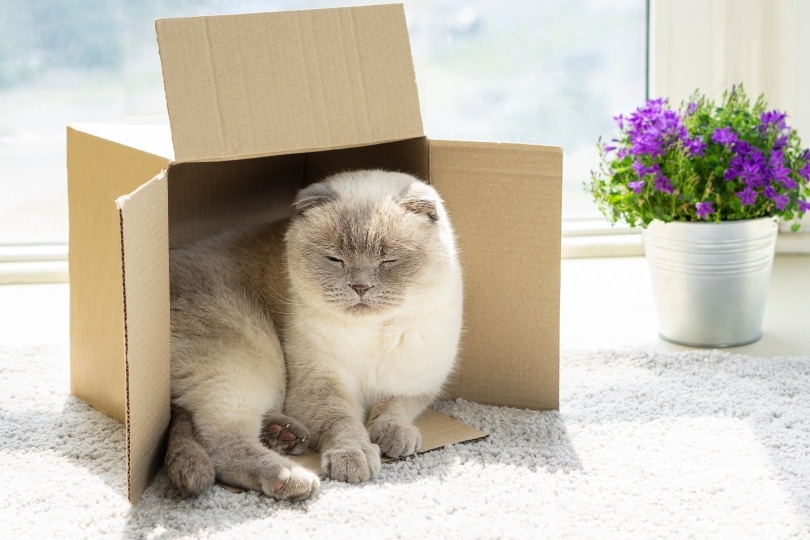
Food and Diet Requirements of a Scottish Fold
It’s best to consult your vet about the ideal diet for your Scottish fold. Cats are obligate carnivores, and a food high in protein that contains taurine and arachidonic acid is beneficial to their diet. To maintain hydration and nutrition, a combination of wet and dry food is ideal.
Exercise Requirements of a Scottish Fold
Scottish Folds are not as active as other breeds and can easily become overweight. They will need some extra playtime, so toys and cat jungle gyms will help keep your cat active and entertained.
Conclusion
Scottish folds are generally healthy kitties but are prone to a few predisposed health conditions. It is crucial to understand the cat’s breeding history to make an informed decision and to be aware of possible health concerns before taking responsibility for one.
Scottish folds can still live long and healthy lives with the right attention, love, and care.
See also:
- Do Scottish Fold Cats Shed More Than Other Cats? (Know Your Cat)
- Can Cats Get Parkinson’s Disease? Vet Approved Health Facts
Featured Image Credit: Alexander Sobol, Shutterstock



